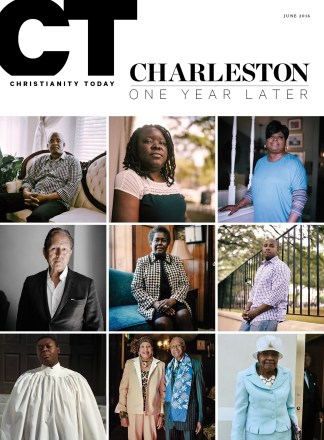Sometimes we can be right for the wrong reasons.
As a charismatic pastor, I have probably heard the statement “Jesus is not our boyfriend” a hundred times. (I don’t recall ever hearing someone say he is our boyfriend, by the way, but that’s another story.) Obviously, this is true: no one is dating Jesus, and Jesus doesn’t want to be our boyfriend, or relate to us like one. Yet the statement is true for very different reasons than the ones usually given.
When it comes to Jesus, we’re understandably anxious to ward off any notions of romance, intimacy, or sexualized imagery. There are too many worship songs that descend into adolescent mushiness and sentimental schmaltz. There are too many churches where immanence is everywhere and transcendence is nowhere. All these aspects of modern church life are problems. But the biggest problem with thinking of Jesus as your boyfriend is not that the image is too intimate. Actually, it is not intimate enough.
Biblically speaking, Jesus is our bridegroom (John 3:29). We are not dating him because we are already betrothed to him (2 Cor. 11:2). The relationship between Christ and the church is compared not to a boyfriend and girlfriend but to a husband and wife (Eph. 5:22–33). At the end of the biblical story, the curtain comes down to the sound of a wedding feast (Rev. 19:6–9; 21:2).
There are other flaws with the boyfriend imagery. First, Western evangelicals often see their relationship to God in an individualized way: Jesus is one party, and I am the other. Yet the Scriptures see the relationship corporately, with Israel or the church as the other party. A boyfriend has just one partner, whereas Jesus takes an entire “people for his name” (Acts 15:14).
Second, when people are dating, they are still exploring possibilities, and the life commitment is yet to come. Yet in marriage, the commitment—much like repentance, faith, and baptism in the life of the believer—has already taken place.
Third, marriage is permanent. It’s a covenant till death us do part, as opposed to a relationship that’s Facebook-official at the moment but might not work out in the end. In each of these ways, the marriage metaphor represents an upgrade, not a diminishment, of intimacy.
Many writers have argued that even the aspect of marriage we find strangest to relate to God—the sexual aspect—is biblically appropriate. Countless patristic, medieval, and Reformation Bible commentators, as well as many modern ones, read the Song of Songs allegorically, as a picture of the relationship between Jesus and his people.
To be sure, that sort of reading is often dismissed as premodern prudery, a desperate attempt to save the Scriptures from speaking so explicitly about sex. Yet when we consider the whole sweep of the Bible, in which sexual union is a picture of spiritual union from Eden to the New Jerusalem, it does not seem so outlandish. Solomon’s song is mainly about sex and marriage, not Jesus and the church. But then again, sex and marriageis mainly about Jesus and the church.
If we reject the idea of Jesus as boyfriend because the language of intimacy bothers us, then we have reached the right conclusion, but for the wrong reasons. The problem is not using intimate language for the Christian life—the Bible certainly does that—but taking union with Christ too lightly. We neglect the corporate, covenantal, and permanent dimensions of marriage. We trivialize a relationship in which two become one, forever, enjoying all things in common. We miss the many ways in which Christian marriage symbolizes our relationship with God: the exchange of promises, the turning away from old commitments, the vow to forsake all others, the covenant signs and seals, the white dress of purity, the legal commitment, the sharing of everything, the physical union, right through to the way the bride traditionally takes the groom’s name. These things are “a profound mystery,” said Paul—“but I am talking about Christ and the church” (Eph. 5:32).
So Jesus is not your boyfriend—but he is your, our, bridegroom. One day, the wedding will come, the celebrations will begin, the wine will flow abundantly, and the union will be complete. The Spirit and the bride say, “Come!”










